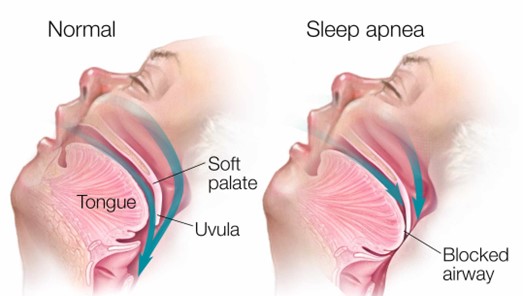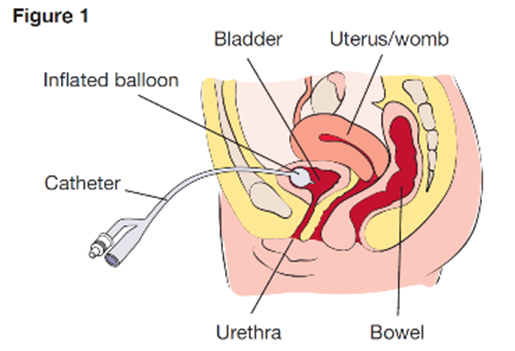Which laboratory results should the nurse closely monitor in a client who has end-stage renal disease (ESRD.?
Serum potassium, calcium, and phosphorus
Erythrocytes, hemoglobin, and hematocrit
Leukocytes, neutrophils, and thyroxine
Blood pressure, heart rate, and temperature
The Correct Answer is A
Choice B reason: Erythrocytes, hemoglobin, and hematocrit are laboratory results that are not as critical as serum potassium, calcium, and phosphorus in a client who has end-stage renal disease (ESRD.. Erythrocytes are red blood cells that carry oxygen from the lungs to the tissues. Hemoglobin is a protein in erythrocytes that binds oxygen. Hematocrit is the percentage of blood volume that is occupied by erythrocytes. ESRD can cause anemia (low erythrocyte, hemoglobin, and hematocrit levels) due to reduced production of erythropoietin, a hormone that stimulates erythrocyte formation, by the kidneys. Anemia can cause fatigue, pallor, or shortness of breath.
Choice C reason: Leukocytes, neutrophils, and thyroxine are laboratory results that are not as relevant as serum potassium, calcium, and phosphorus in a client who has end-stage renal disease (ESRD.. Leukocytes are white blood cells that fight infection and inflammation. Neutrophils are a type of leukocyte that respond to bacterial infection. Thyroxine is a hormone that regulates metabolism and growth. ESRD can cause leukopenia (low leukocyte levels) and neutropenia (low neutrophil levels) due to impaired immune function and increased susceptibility to infection. ESRD can also cause hypothyroidism (low thyroxine levels) due to reduced clearance of thyroid hormones by the kidneys. Hypothyroidism can cause weight gain, cold intolerance, or depression.
Choice D reason: Blood pressure, heart rate, and temperature are not laboratory results, but vital signs that should be monitored in a client who has end-stage renal disease (ESRD.. Blood pressure is the force of blood against the walls of the arteries. Heart rate is the number of times the heart beats per minute. Temperature is the measure of body heat. ESRD can cause hypertension (high blood pressurE. due to fluid overload and activation of the renin-angiotensin-aldosterone system, a hormonal pathway that regulates blood pressure and fluid balance. Hypertension can cause headache, chest pain, or stroke. ESRD can also cause tachycardia (high heart ratE. due to anemia, fluid overload, or electrolyte imbalance. Tachycardia can cause palpitations, dizziness, or heart failure. ESRD can also cause fever (high temperaturE. due to infection or inflammation. Fever can cause chills, sweating, or delirium.
Nursing Test Bank
Naxlex Comprehensive Predictor Exams
Related Questions
Correct Answer is A
Explanation
Choice B reason: Elevating the head of the bed to a 45-degree angle is not a sufficient intervention for the nurse to implement before leaving the client. Elevating the head of the bed can help reduce snoring and improve breathing by preventing the tongue and soft palate from falling back and obstructing the airway. However, it may not be enough to prevent apnea episodes in clients with obstructive sleep apnea, especially if they have other risk factors such as obesity, enlarged tonsils, or nasal congestion. The nurse should also use other interventions such as a positive airway pressure device, weight loss, or surgery.
Choice C reason: Removing dentures or other oral appliances is not a relevant intervention for the nurse to implement before leaving the client. Dentures or other oral appliances are devices that replace missing teeth or improve dental alignment. They may help improve speech, chewing, and appearance, but they do not have a direct impact on obstructive sleep apnea. The nurse should instruct the client to remove dentures or other oral appliances before going to bed to prevent discomfort, infection, or damage.
Choice D reason: Lifting and locking the side rails in place is not a necessary intervention for the nurse to implement before leaving the client. Side rails are bars that attach to the sides of the bed frame to prevent falls or injuries. They may provide safety and security for some clients, but they may also pose risks such as entrapment, strangulation, or agitation. The nurse should assess the need for side rails on an individual basis and consider alternative measures such as bed alarms, low beds, or floor mats.

Correct Answer is A
Explanation
Choice A: Observing the insertion site of the suprapubic catheter is an essential assessment for the home health nurse, as this can help detect any signs of infection, inflammation, or leakage. Therefore, this is the correct choice.
Choice B: Palpating the flank area is not a necessary assessment for the home health nurse, as this is not related to the suprapubic catheter. This is a distractor choice.
Choice C: Measuring abdominal girth is not a relevant assessment for the home health nurse, as this is not affected by the suprapubic catheter. This is another distractor choice.
Choice D: Assessing the perineal area is not an important assessment for the home health nurse, as this is not involved in the suprapubic catheter. This is another distractor choice.

Whether you are a student looking to ace your exams or a practicing nurse seeking to enhance your expertise , our nursing education contents will empower you with the confidence and competence to make a difference in the lives of patients and become a respected leader in the healthcare field.
Visit Naxlex, invest in your future and unlock endless possibilities with our unparalleled nursing education contents today
Report Wrong Answer on the Current Question
Do you disagree with the answer? If yes, what is your expected answer? Explain.
Kindly be descriptive with the issue you are facing.
